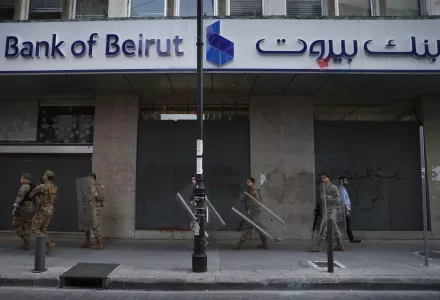
Lebanon is facing unprecedented intertwined crises: Its banking sector is largely insolvent, its currency has significantly depreciated, and its debt is unsustainable. Lurking behind this is the country’s ailing and neglected infrastructure, which is essential to kick-start economic growth. Poor quality of roads, limited access to water, and chronic power shortages have cemented Lebanon’s ranking among the worst in overall quality of infrastructure compared to countries with similar levels of economic development.
Atallah, Sami, Ishac Diwan, Jamal Ibrahim Haidar and Wassim Maktabi. “Public Resource Allocation in Lebanon: How Uncompetitive is CDR’s Procurement Process?.” Lebanese Center for Policy Studies, July 23, 2020
The full text of this publication is available via Lebanese Center for Policy Studies.




